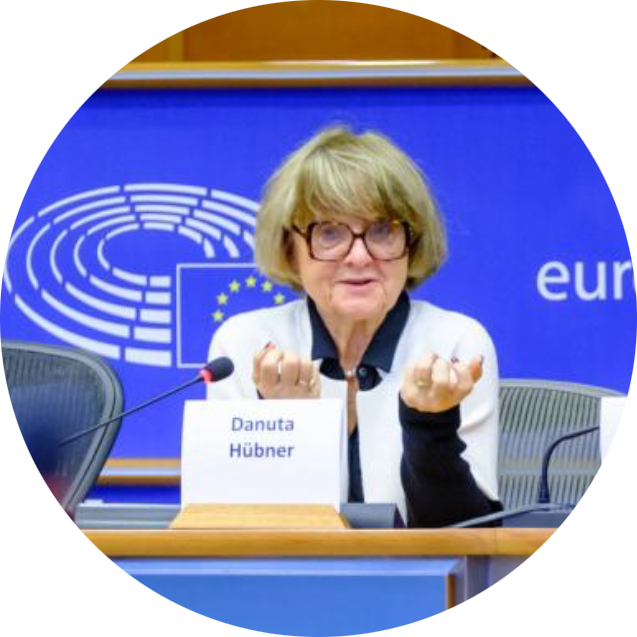Analyzing The Polish Presidential Election: Implications For Europe

Table of Contents
Wyniki wyborów i ich znaczenie (Election Results and their Significance)
The [insert year] Polskie wybory prezydenckie saw [winning candidate's name] secure victory with [percentage]% of the vote, defeating [opponent's name] who received [percentage]%. Voter turnout was [percentage]%, [higher/lower] than in previous elections. This result carries significant weight, considering the [mention any historical context or unique aspects of this election cycle].
-
Geographic Distribution of Votes: Support for [winning candidate's name] was strongest in [mention specific regions], reflecting [explain reasons, e.g., stronger conservative base, specific policy preferences]. Conversely, [opponent's name] enjoyed greater support in [mention specific regions], possibly due to [explain reasons, e.g., higher concentration of liberal voters, economic concerns]. Analyzing this geographical spread provides key insights into the socio-political divisions within Poland.
-
Demographic Factors: Age played a significant role, with older voters showing a stronger preference for [mention candidate and their party], while younger demographics leaned towards [mention candidate and their party]. Socioeconomic status also influenced voting patterns, with [explain correlation between socioeconomic status and voting preferences]. This demographic breakdown highlights the complex interplay between social factors and political choices in Poland.
-
Performance of Political Parties: The election results clearly indicate the strength of [winning party] and the challenges faced by [opposition parties]. The [mention specific events or policy debates] significantly impacted the electorate’s choices. This outcome will likely shape the political landscape for the coming years, influencing future parliamentary elections and impacting legislative processes.
-
Historical Significance: These Polskie wybory prezydenckie are historically significant because [explain why, e.g., first election after a major political shift, decisive victory for a particular ideology]. This election marks a turning point in [mention specific aspects, e.g., the consolidation of a specific political power, shift in national direction].
Polityka wewnętrzna Polski po wyborach (Poland's Domestic Politics Post-Election)
The election results will undoubtedly shape Poland's domestic policies in several key areas.
-
Economic Policy: [Winning candidate's name]'s platform suggests [explain their economic policies, e.g., a focus on fiscal conservatism, increased investment in infrastructure]. This could lead to [explain potential consequences, e.g., increased economic growth, potential job creation, or concerns about social inequality].
-
Social Policy: Expect [explain potential changes in social welfare programs, e.g., reforms to healthcare, pension systems, family benefits]. These changes will likely have a significant impact on [explain consequences, e.g., social welfare, the lives of specific demographics].
-
Judicial Reforms: The election outcome will likely influence the continuation or modification of judicial reforms. This is a critical area, given the ongoing concerns about [explain the rule of law debate and its implications for Poland's EU membership].
The composition of the new government will be crucial in implementing these policies and managing the associated challenges. The government's ability to maintain political stability and public support will determine its success in achieving its policy goals.
Relacje Polska-UE po wyborach (Poland-EU Relations Post-Election)
The Polskie wybory prezydenckie results have significant implications for Poland's relationship with the European Union.
-
Approach to EU Regulations: [Winning candidate's name]'s stance on EU regulations suggests a [explain their approach, e.g., more cooperative or confrontational approach]. This will influence Poland's willingness to comply with EU directives and participate in EU-wide initiatives.
-
Rule of Law Debate: The ongoing rule of law debate within the EU will continue to be a significant point of contention. The new government’s approach to this issue will have a direct bearing on Poland's relations with other member states and the EU institutions.
-
EU Funding: Poland's access to EU funding could be affected by the government's stance on EU regulations and its commitment to upholding the rule of law. Potential funding cuts could significantly impact Poland's economic development plans.
-
Participation in EU Initiatives: Poland's participation in key EU initiatives, such as [mention specific initiatives], could be influenced by the government's priorities and its relationship with the EU.
Wpływ na politykę zagraniczną (Impact on Foreign Policy)
The election results will significantly impact Poland's foreign policy:
-
The United States: Poland's relationship with the US is expected to [explain potential changes, e.g., remain strong, undergo significant shifts]. The new government’s foreign policy will reflect its stance on transatlantic relations.
-
Other EU Members: The election outcome could influence Poland's cooperation with other EU members. The government's approach to EU issues will determine its level of engagement and cooperation with its European partners.
-
Russia and other Neighboring Countries: Poland's foreign policy towards Russia and its eastern neighbors will likely be shaped by the [mention candidate's policy preferences, e.g., new government's geopolitical priorities, commitment to NATO, security concerns].
Conclusion
The Polskie wybory prezydenckie have far-reaching implications for Poland's domestic and foreign policies. The election results signal a potential shift in [mention key areas, e.g., economic direction, relationship with the EU, foreign policy priorities]. The impact on EU-Poland relations will require close monitoring, particularly concerning the rule of law and access to EU funds. The potential consequences for European stability remain a key area of concern. Understanding the intricacies of the Polskie wybory prezydenckie is crucial for navigating the evolving political landscape of Europe. Stay informed about further developments and their impact on the future of the EU by continuing to follow our analysis of Polish politics. Further research into the Polskie wybory prezydenckie and their ramifications is highly recommended.

Featured Posts
-
 Everything You Need To Know About Eurovision Song Contest 2025
May 19, 2025
Everything You Need To Know About Eurovision Song Contest 2025
May 19, 2025 -
 Oscar Winner Mark Rylance Protests London Park Music Festival Plans
May 19, 2025
Oscar Winner Mark Rylance Protests London Park Music Festival Plans
May 19, 2025 -
 Jennifer Lawrence And Cooke Maroney A Public Appearance Following Second Child Reports
May 19, 2025
Jennifer Lawrence And Cooke Maroney A Public Appearance Following Second Child Reports
May 19, 2025 -
 The China Market And Its Implications For Bmw Porsche And Other Automakers
May 19, 2025
The China Market And Its Implications For Bmw Porsche And Other Automakers
May 19, 2025 -
 Palm Springs Bombing Investigating The Role Of Suspect Guy Bartkus
May 19, 2025
Palm Springs Bombing Investigating The Role Of Suspect Guy Bartkus
May 19, 2025
